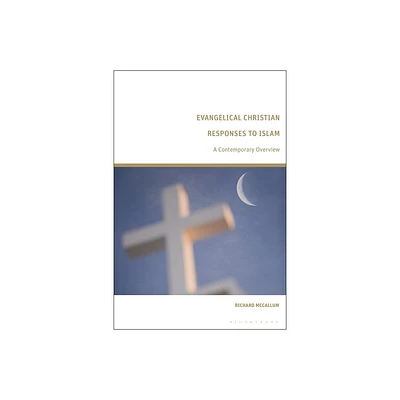Home
Evangelical Christian Executives: A New Model for Business Corporations
Loading Inventory...
Barnes and Noble
Evangelical Christian Executives: A New Model for Business Corporations
Current price: $180.00


Barnes and Noble
Evangelical Christian Executives: A New Model for Business Corporations
Current price: $180.00
Loading Inventory...
Size: Hardcover
*Product Information may vary - to confirm product availability, pricing, and additional information please contact Barnes and Noble
"[In Evangelical Christian Executives,] Dr. Solomon has captured the essence of an effective and refreshingly different approach to business. In telling the compelling stories of six Christian CEOs, he shows us an alternative to an ethic of greed that has so tarnished corporate America." John D. Beckett, CEO and Chairman of R.W. Beckett Corp. Events of recent years have encouraged a high degree of skepticism and doubt about business institutions and markets. In the face of widespread cynicism about corporate credibility, business leaders are seeking to restore the trust and confidence not only of investors, but of employees, customers, suppliers, shareholders, potential investors, and the public-at-large. In this volume, Lewis D. Solomon focuses on evangelical Christians who have founded or come to lead six firms. He explores whether religion offers a constructive way to think about corporate governance and the tensions between profitability and social responsibility. Solomon finds that many Christian executives have a private faith, leading quietly by example. Others want their faith to shine forth. Solomon focuses on this latter group, dividing them into two categories. The first group he identifies as preachers, who weave visible demonstrations of their faith into the fabric of their businesses. The second are those who take a more sophisticated approach, based on two biblical principles: stewardship and/or servant-leadership. In addition to examining how these leaders of faith have successfully brought their religious values into their businesses, he assesses the consequences of incorporating their faith and values into their business organizations, considering profitability, employee and customer satisfaction, legal and environmental compliance, and charitable giving. Together with these leadership styles and results, Solomon presents three business modelsconstant, transformational, and evolvingthat enable readers to gain a further understanding of the six companies. While Solomon shows that it is possible to integrate financial profitability and broader religious goals, he finds that it is difficult, though not impossible, to maintain a biblically based leadership style after a firm goes public or expands. With the growth of evangelical Christianity in many sectors of American public life, this volume will be of broad interest to business executives, sociologists, students of religion, and economists. Lewis D. Solomon is Theodore Rinehart Professor of Business Law at the George Washington University Law School, where he has taught corporate and tax law for over twenty-five years. A prolific author on legal, business, public policy, and religious topics, he has written over fifty books and numerous articles. He is an ordained rabbi and interfaith minister.


















